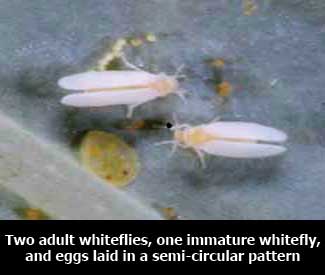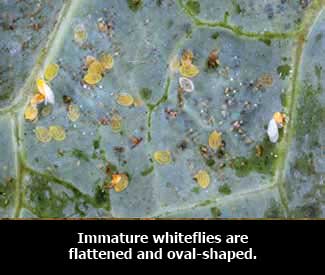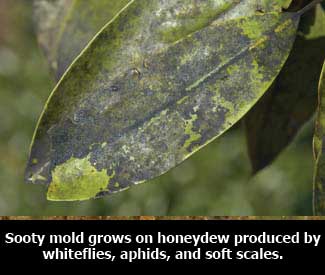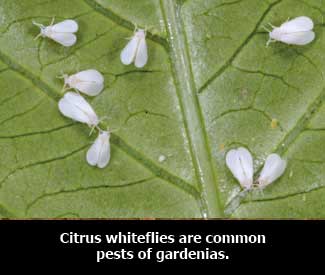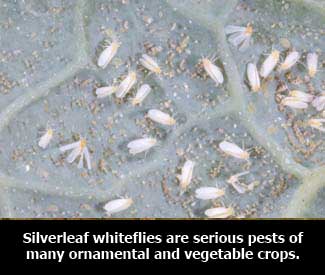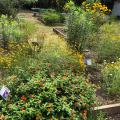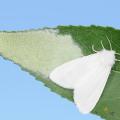Whiteflies
Whiteflies are small (about 1/12 inch), soft-bodied insects that have piercing/sucking mouthparts. Adult whiteflies have white, powder-covered wings, but immature whiteflies are immobile and are similar to scale insects. Like aphids and soft scales, whiteflies produce honeydew, which supports the growth of sooty mold fungi. There are several species, but citrus whitefly and silverleaf whitefly are most common. Citrus whitefly is especially common on gardenias. Silverleaf whitefly occurs on a wide variety of plants and is frequently a problem on tropical hibiscus. Heavy whitefly infestations cause plants to be unsightly because of the accumulations of honeydew and sooty mold, and to grow poorly due to the sap lost to insect feeding.
Control Whiteflies: Soil-applied systemic treatments with products that contain dinotefuran (Zylam or Safari) usually provide effective, long-lasting control of whiteflies. Treat your whitefly-prone gardenias with dinotefuran in mid to late spring, and you probably will not have a whitefly problem for the remainder of the year. Products containing acetamiprid (Ortho Flower, Fruit, and Vegetable Insect Killer) work well against whiteflies when applied as a foliar spray. This is a good treatment to use on potted plants, like tropical hibiscus, that develop whitefly infestations. Choose whitefly treatments carefully; spraying with ineffective treatments will make the problem worse. Especially avoid spraying with malathion, carbaryl (Sevin), or pyrethroid insecticides (permethrin, cyfluthrin, bifenthrin, cyhalothrin, etc.).
See Insect Pests of ornamental plants in the home landscape, page 6 and pages 39-41 for more information on whiteflies.
Publications
News
A grant from Coast Electric will allow for a renovation of the Mississippi State University Crosby Arboretum’s pollinator garden. Pat Drackett, director of the arboretum, said the pollinator garden was established in 2001 as the Explorers’ Garden. It is a 3,000-square-foot space with a variety of native and other plants that helps teach visitors how to create havens for pollinators.
The 2020 Fall Flower & Garden Fest will be a virtual, educational event this year.
A tent for camping in the woods can be a good thing, but a tent filled with caterpillars in a pecan tree can be bad news for homeowners.

